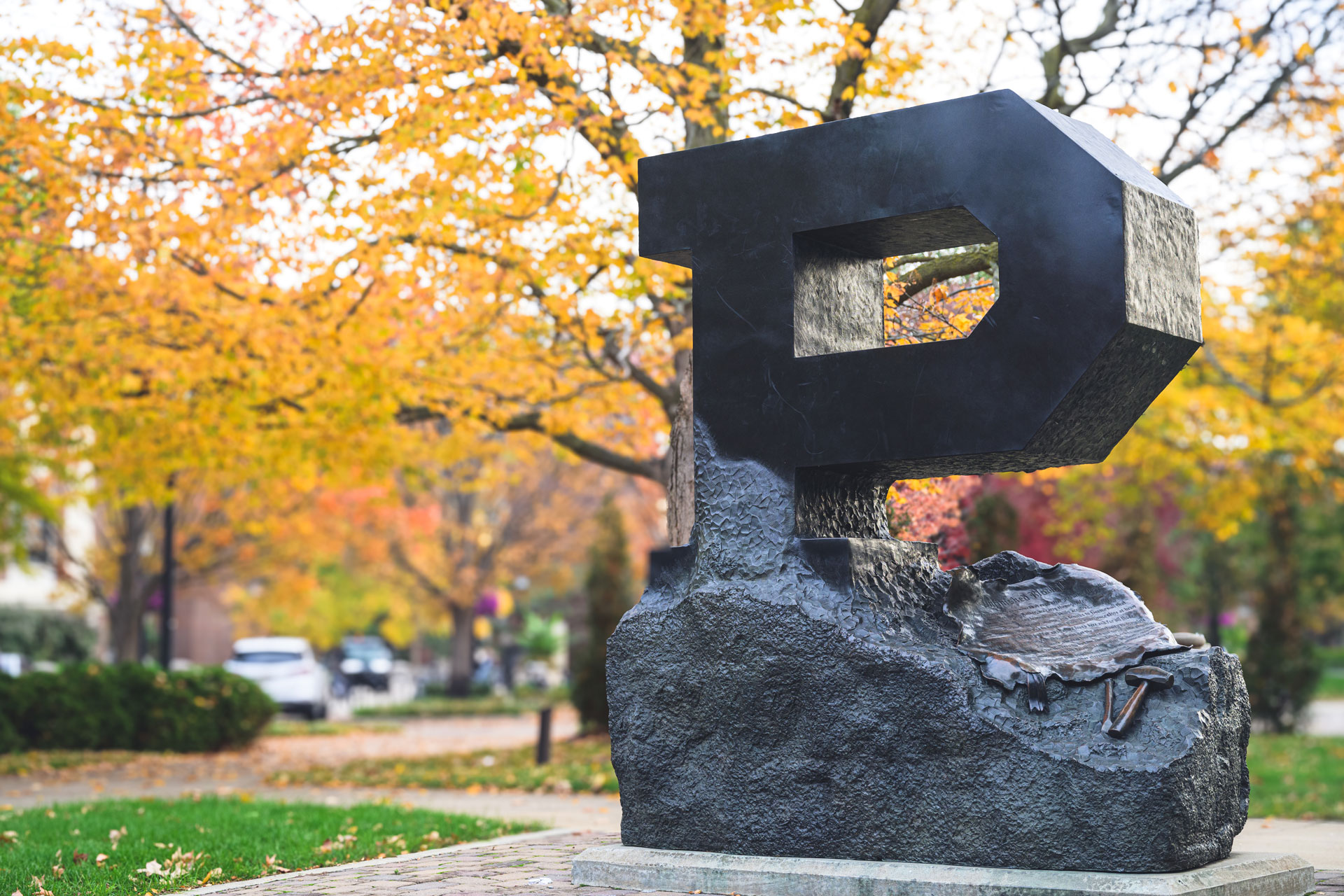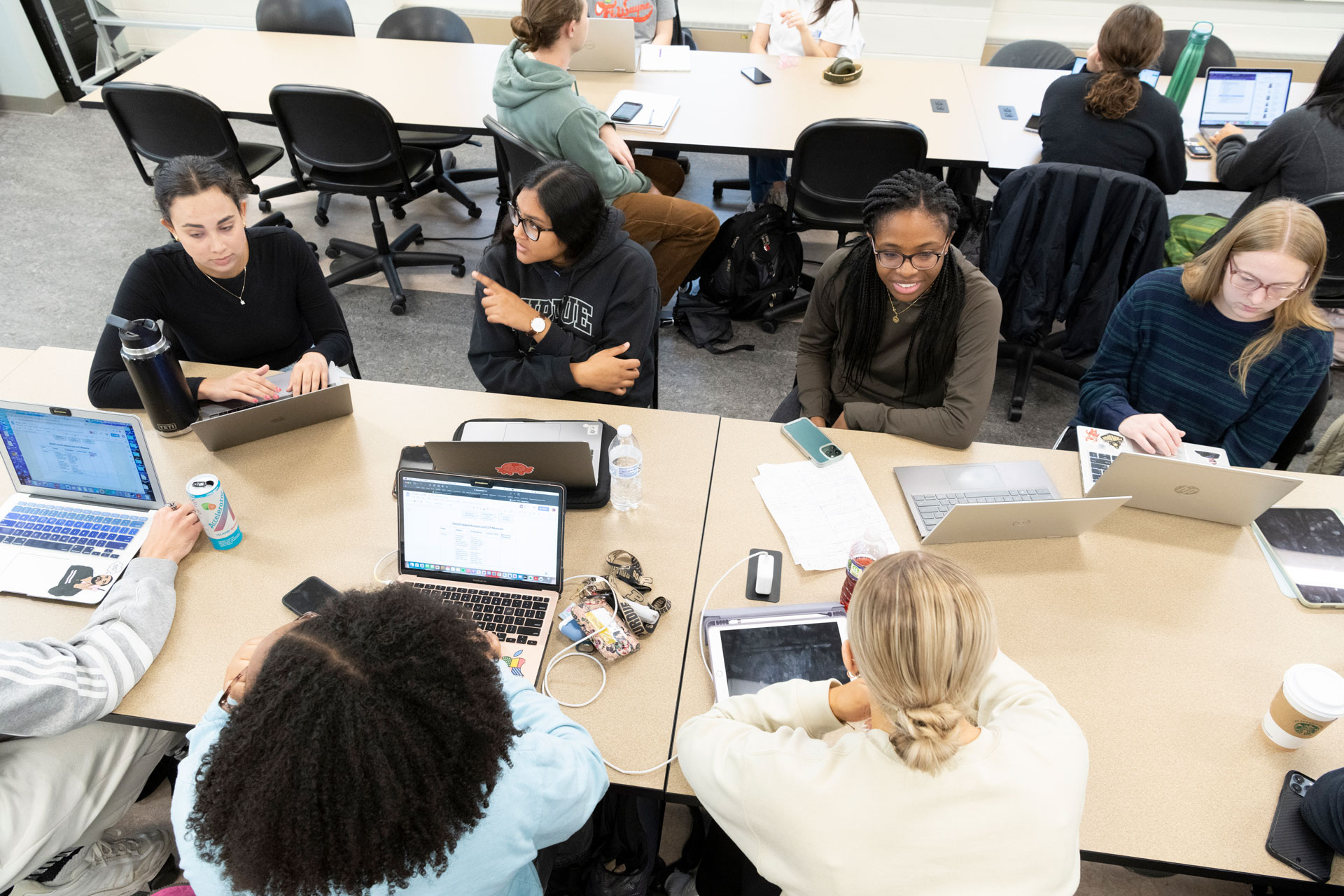Gifted Education
Doctor of Philosophy (PhD)
Advance Your Career
Purdue’s internationally recognized gifted education program attracts talented graduate students from across the country and from around the world. Through experiences such as research, teaching, and P-12 engagement, our graduates are well-prepared to enter research and teaching positions at universities, as well as leadership positions in local, state and federal agencies and schools.
This residential program has rolling admission. Applications must be fully complete and submitted (including all required materials) and all application fees paid prior to the deadline in order for applications to be considered and reviewed. For a list of all required materials for this program application, please see the “Admissions” tab.
Application Deadlines
August 1* is the deadline for Fall applications.
December 15 is the deadline for Spring applications.
April 15 is the deadline for Summer applications.
*Those applicants interested in being considered for any available PhD funding should submit completed applications by December 15 for the following Fall semester.
Program at a Glance
- Major/Department: Educational Studies
- Research Area: Gifted Education
- Degree Objective: Doctor of Philosophy (PhD)
- Program Delivery: Residential
- Does this program lead to licensure? *No, this is a non-licensure program

Request Information

Courses
Candidates are generally required to complete the departmental research foundation (12 hours), core requirements in educational psychology (21 hours), an area of specialization (9 hours), a related area (9 hours), and 9-15 hours of thesis credit for a total of 60+ hours beyond the master’s degree. Areas of specialization and related areas are planned cooperatively by the student, the advisor, and the advisory committee. Coursework must be completed in a five-year period. In addition to completing their coursework, doctoral students are expected to gain experience and expertise in research, writing, teaching, leadership, and service.
Ph.D. Plan of Study Guidelines
Departmental Foundation Requirement
- 6 credits – Two foundational statistics courses
- 3 credits – one additional statistics and/or research methods course
- 3 credits – one departmental advanced research methods course
- EDPS 630 – Research Procedures in Education
Primary Area Core Requirements
- 3 credits – one course in measurement
- EDPS 531 – Introduction to Measurement and Evaluation
- EDPS 532 – Measuring Educational Achievement
- 3 credits – one course in development by advisement
- 6 credits – two of the following courses in development, learning, and instruction:
- EDPS 535 – Personal-Social Dynamics in the Classroom
- EDPS 536 – Achievement Motivation and Performance
- EDPS 537 – Prose Learning and Retention
- EDPS 538 – School Learning and Instruction
- EDPS 540 – Gifted, Creative, and Talented Students
- 9 credits – enrollment in one or more of the following variable credit seminars:
- EDPS 631 – Applied Research Design (Gifted Education Seminar)
- Students are expected to enroll in this specialized seminar each time it is offered until they have successfully defended their dissertation proposal.
- EDPS 632 – Research Procedures in Education
- EDPS 633 – Educational Psychology
- EDPS 631 – Applied Research Design (Gifted Education Seminar)
Primary Area Specialization
12+ Credits – Four or more electives by advisement
Related Area
9+ credits – Multiple enrollments in EDPS 699 Research Ph.D. thesis are expected while working on the dissertation; typically students take 9-15 hours of EDPS 699 for a Ph.D.
Total Credits = 63+
Residency Requirement
The graduate school requires doctoral students to satisfy 90 hours of residency. This can be accomplished several ways. Please see your advisor to be sure that your plan of study meets this requirement.
Graduation
Students are responsible for ensuring that all graduate school deadlines are met in time for their proposed date of graduation.
Creating an Advisory Committee
All Ph.D. students select an advisory committee of at least three faculty members in addition to their major advisor. More than 50% of the committee members must be from the West Lafayette campus.

Supplemental Program Information
Preliminary Examinations
Preliminary examinations for candidacy must be taken by all Ph.D. students near the end of their course work prior to beginning their dissertation research. The purpose of the preliminary examination is to assess the student’s readiness to proceed with independent research and writing that will lead to satisfactory completion of a doctoral dissertation. Preliminary examination committees generally consist of 3 faculty members, two of whom must be from the West Lafayette campus. The student is responsible for selecting and appointing the committee members in consultation with his/her advisor. The committee determines the form of oral and written examinations, and the content to be covered. The oral examination is generally conducted after written prelims have been completed. The oral examination must be formally scheduled in advance through the graduate office at a time when all committee members can be present. The student must be enrolled during the session in which the examination is held and the preliminary examinations must be completed at least two sessions before the student’s expected graduation date. After successfully completing formal coursework and the preliminary examination, students will continue to be evaluated each semester on progress toward completion of their dissertation. Leaving campus prior to completion of the dissertation is strongly discouraged.
Dissertation
The culmination of a doctoral program involves completion of a research project under the guidance of a faculty committee. Generally, this phase of the program takes 1-2 years. The first step in the dissertation process is the development of a written research proposal in consultation with the advisor and committee members. The dissertation committee must include at least four members, and at least three of them must be from the West Lafayette campus. The dissertation proposal consists of a relatively complete critical review of the literature providing a theoretical rationale for the study, research questions/hypotheses, and proposed methods for investigating those questions/hypotheses. The student submits drafts of the dissertation proposal to his/her advisor and the advisor determines when the proposal is ready to present to the committee. At that time, the student schedules a proposal meeting with all committee members. The purpose of the proposal meeting is for the student to (a) present his/her dissertation proposal, (b) provide a rationale for the study, (c) engage in a discussion with the committee members, and (d) obtain an agreement with the committee about the final study. All committee members participate in the proposal discussion. If a member cannot be present at the meeting, he/she provides feedback to the student’s major advisor. The approved dissertation proposal, signed by all committee members, is filed in the Graduate Studies Office, School of Education. (Note: This material was adapted from the Department of Educational Studies Dissertation Proposal Policy.
Completing the Dissertation and Establishing an Examining Committee
After the dissertation proposal is approved, students complete their research, write their dissertation in consultation with their major advisor and committee. After the advisor determines the written thesis is ready to present to the committee, the student must appoint an examining committee (usually the same as the advisory committee) and schedule a thesis defense. Prior to submitting the formal request for appointment of the examining committee, students must have received format approval for their thesis. Also note that students must be enrolled during the session in which an examination is held. The final examining committee must be composed of at least four members of the graduate faculty and may be identical to the advisory committee. More than 50% of the committee members must be from the West Lafayette campus. To schedule the thesis defense the major advisor submits a Request for Appointment of Examining Committee form at least three weeks prior to the desired examination date.
Completing the Dissertation and Establishing an Examining Committee
After the dissertation proposal is approved, students complete their research, write their dissertation in consultation with their major advisor and committee. After the advisor determines the written thesis is ready to present to the committee, the student must appoint an examining committee (usually the same as the advisory committee) and schedule a thesis defense. Prior to submitting the formal request for appointment of the examining committee, students must have received format approval for their thesis. Also note that students must be enrolled during the session in which an examination is held. The final examining committee must be composed of at least four members of the graduate faculty and may be identical to the advisory committee. More than 50% of the committee members must be from the West Lafayette campus. To schedule the thesis defense the major advisor submits a Request for Appointment of Examining Committee form at least three weeks prior to the desired examination date.

Admissions
A graduate application must be submitted and application fee paid (if applicable) by the application deadline. In addition, the materials listed under the Application Requirements section below must be submitted by the application deadline in order for an application to be considered complete and for the application to be reviewed for admission consideration. Please review the How to Apply section below before submitting an application.
A completed master’s degree is not required for admission to this program.
Application Requirements
Here are the materials required for this application
- Transcripts (from all universities attended, including an earned bachelor’s degree)
- Curriculum Vitae/Resume
- Academic Statement of Purpose
- Personal History Statement
- 3 Recommendations
We encourage prospective students to submit an application early, even if not all required materials are uploaded. Applications are not forwarded on for faculty review until all required materials are uploaded.
How to Apply
When submitting your application for this program, please select the following options:
- Campus and Program Tab:
- Select a Campus: Purdue West Lafayette (PWL)
- Select your proposed graduate major: Educational Studies
- First Choice Program Details Tab:
- Please select an Area of Interest: Gifted Education
- Please select a Degree Objective: Doctor of Philosophy (PhD)
- Primary Course Delivery: Residential
This program does not lead to licensure in the state of Indiana or elsewhere. Contact the College of Education Office of Teacher Education and Licensure (OTEL) at licensure@purdue.edu before continuing with the program application if you have questions regarding licensure or contact your state Department of Education about how this program may translate to licensure in your state of residence.
